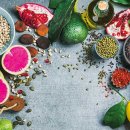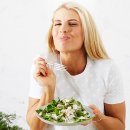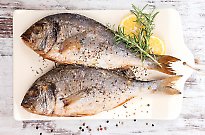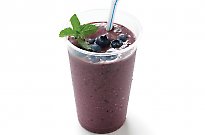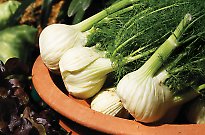
In season: the health benefits of pears
In season: the health benefits of pears

We might like them poached in red wine, baked into cakes and sliced up and sprinkled on salads, but did you know that pears have been used as a traditional folk remedy for more than 2000 years? In Chinese traditional medicine, pears are used to ease inflammation and coughs and as a hangover cure.
While the latter claim may seem unlikely, scientific studies on Korean pears have backed it up. “It appears that the factors in Korean pears act on the key enzymes involved in alcohol metabolism – alcohol dehydrogenase and aldehyde dehydrogenase – to speed up alcohol metabolism and elimination or inhibition of alcohol absorption,” says Professor Manny Noakes, research director for food, nutrition and health in the CSIRO Food and Nutrition Flagship. “In particular, reductions were seen in blood acetaldehyde levels, the toxic metabolic thought to be responsible for the hangover symptoms, with pear juice consumption.”
But that’s not it for health perks. Pears contain several ‘bioactive components’, such as polyphenols (especially in the peel) and fibre, which contribute to your overall wellness. A 2015 CSIRO report on the health properties of pears concluded they have the following health perks.
Regulate bowel function
According to the report, pears surpass all other fruits for its high content of digestive regulating nutrients including fibre, fructose and sorbitol. The high fibre content of pears (4.1 grams in a medium-sized pear) also helps ‘keep you regular’. (Unfortunately, these same features of pear may result in discomfort in a small proportion of the population who inadequately absorb fructose or FODMAPs.) This “natural package of digestive-regulating nutrients”, the report says, may well be our daily prescription for digestive health.
Assist with weight loss
A study of women (aged 30 to 50) on a weight loss diet found that eating 300 grams of pears or apples per day resulted in significantly greater weight loss over a 10-week period compared to 60 grams of oat cookies per day. The theory behind the results is that eating more low-energy density pear as opposed to high-energy density cookies resulted in lower calorie consumption overall.
Help manage blood sugar
Pears have a low glycaemic index (GI), which means (though they’re sweet) they won’t give you a sugar rush. According to the CSIRO report, studies have also shown that pear extracts can have favourable effects on blood glucose, important for diabetics. “This is potentially related to insulin-like activity of various bioactive compounds in pear, in particular blocking of carbohydrate digestion by certain phenolic acids” the report says.
Easing allergies
According to the report, pears may be able to treat or ease allergic inflammatory diseases (such as asthma, rhinitis and eczema) with their unique combination of polyphenols and flavonoids. “Research on flavonoids, including the rutin and quercetin present in pears, indicates some potential activity for the treatment of allergic diseases such as asthma,” the report says.
Prevent disease
Pears are joining apples in ‘keeping the doctor away’. According to the CSIRO report, pears are a good source of phenolic acids, in particular chlorogenic acid, arbutin, ferulic and citric acid. “Chlorogenic acid is of interest due to its role in regulating glucose and lipid metabolism,” the report says. “A recent review on chlorogenic acid identified 27 studies including 3 human clinical trials and 18 animal studies which showed improvements in a range of metabolic biomarkers related to diabetes, cardiovascular health and obesity including serum lipids, insulin resistance, glucose tolerance and obesity-related hormones.”
NEXT: Try this delightful chocolate, almond & pear tart for a treat.

